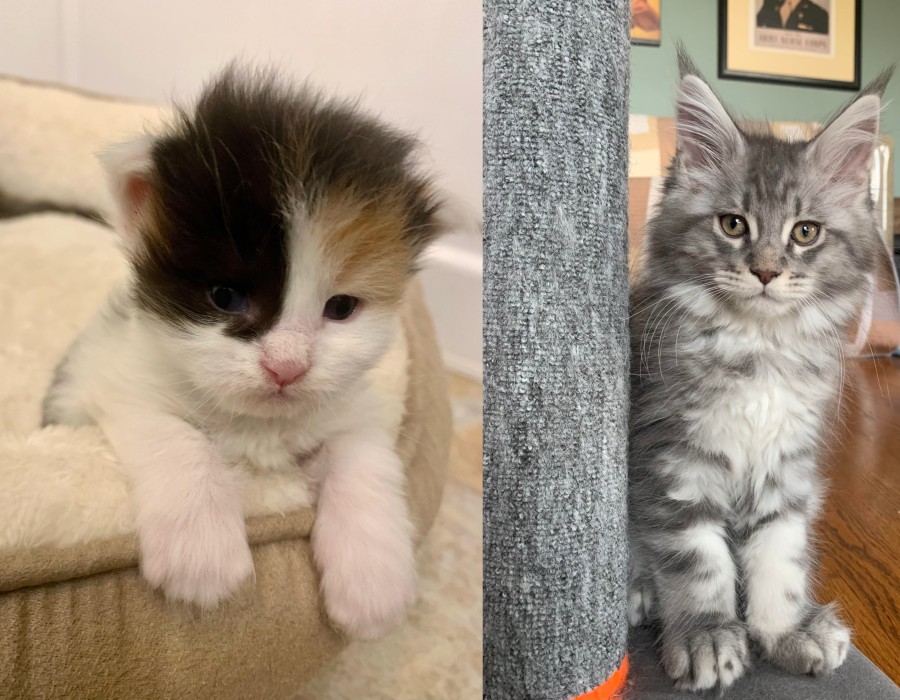Bringing a new kitten into your home is an exciting experience. Ensuring your kitten receives proper nutrition is essential for its growth and development. This guide will provide comprehensive information on what to feed your growing cat, focusing on various aspects of kitten nutrition.
Why Proper Nutrition is Crucial for Kittens?
Proper nutrition during the early stages of a kitten's life sets the foundation for a healthy adult cat. Due to their speedy growth and development, kittens have different nutritional needs than adult cats. Feeding them the right food helps build strong bones, healthy muscles, and a good immune system.
Understanding Kitten Nutritional Needs
Kittens require a balanced diet rich in proteins, fats, vitamins, and minerals. Proteins are crucial for muscle growth, while fats provide the energy needed for their playful activities. Vitamins and minerals support various bodily functions and overall health.
Essential Nutrients for Growing Kittens
- Proteins: Kittens need a higher protein intake than adult cats. Look for foods that list animal proteins like chicken, turkey, or fish as the basic ingredients.
- Fats: Healthy fats are great for energy and brain development. Omega-3 and Omega-6 fatty acids are particularly beneficial.
- Vitamins and Minerals: Vitamins A, D, E, and calcium are essential for bone growth and immune health. Ensure the food is fortified with these nutrients.
- Water: Always provide fresh water. Hydration is important for digestion and total health.
Types of Kitten Food
Wet Food
Wet food is high in moisture, which helps keep your kitten hydrated. It's often more palatable for kittens and easier to chew.
Dry Food
Dry food is convenient and helps keep teeth clean. Ensure it's formulated for kittens and high in essential nutrients.
Raw Food
Some pet owners prefer a raw diet. If you choose this option, ensure it is balanced and consult with a veterinarian to avoid nutritional deficiencies.
Feeding Schedule for Kittens
Kittens need frequent meals due to their small stomachs and high energy levels. Here is a recommended feeding schedule:
- Up to 6 Months: Feed 3-4 times a day.
- 6-12 Months: Gradually reduce to 2-3 meals a day.
Transitioning to Adult Cat Food
As your kitten approaches one year, start transitioning to adult cat food. Gradually mix the new food with the kitten food over a week to avoid digestive issues.
Special Considerations for Different Breeds
Different breeds may have specific nutritional needs. For example, larger breeds like Maine Coons may need more calories and nutrients for their growth. Always consult with your veterinarian to customize the diet to your kitten's breed and health needs.
Common Feeding Mistakes to Avoid
- Overfeeding: Overfeeding can lead to obesity, which poses various health risks. Stick to the recommended portions.
- Feeding Dog Food: Never feed your kitten dog food. Cats have multiple nutritional needs, and dog food lacks essential nutrients for kittens.
- Inadequate Hydration: Ensure your kitten always has access to fresh water, especially if feeding dry food.
Supplements: Are They Necessary?
If you are feeding a balanced and complete kitten food, additional supplements are usually unnecessary. However, some kittens might need extra vitamins or minerals due to specific health conditions. Always consult your vet before introducing supplements.
Choosing the Right Kitten Food
When selecting food, look for brands that meet the Association of American Feed Control Officials (AAFCO) standards. This ensures that the food is nutritionally complete and balanced.
Where to Buy Quality Kitten Food?
Quality kitten food can be found in pet stores, online retailers, and some veterinarian offices. To avoid counterfeit products, ensure the source is reputable. Many websites offering kittens for sale, Bellingham, also provide recommendations for kitten food.
Homemade Diets: Pros and Cons
While homemade diets allow control over ingredients, they need careful planning to ensure they meet all nutritional needs. If you prefer homemade food, consult a vet to create a balanced recipe.
Monitoring Your Kitten’s Health
Regular vet check-ups are important to monitor your kitten's growth and health. Check their weight, coat condition, and energy levels to ensure they're thriving on their diet.





Comments